Samsung T7 Shield review
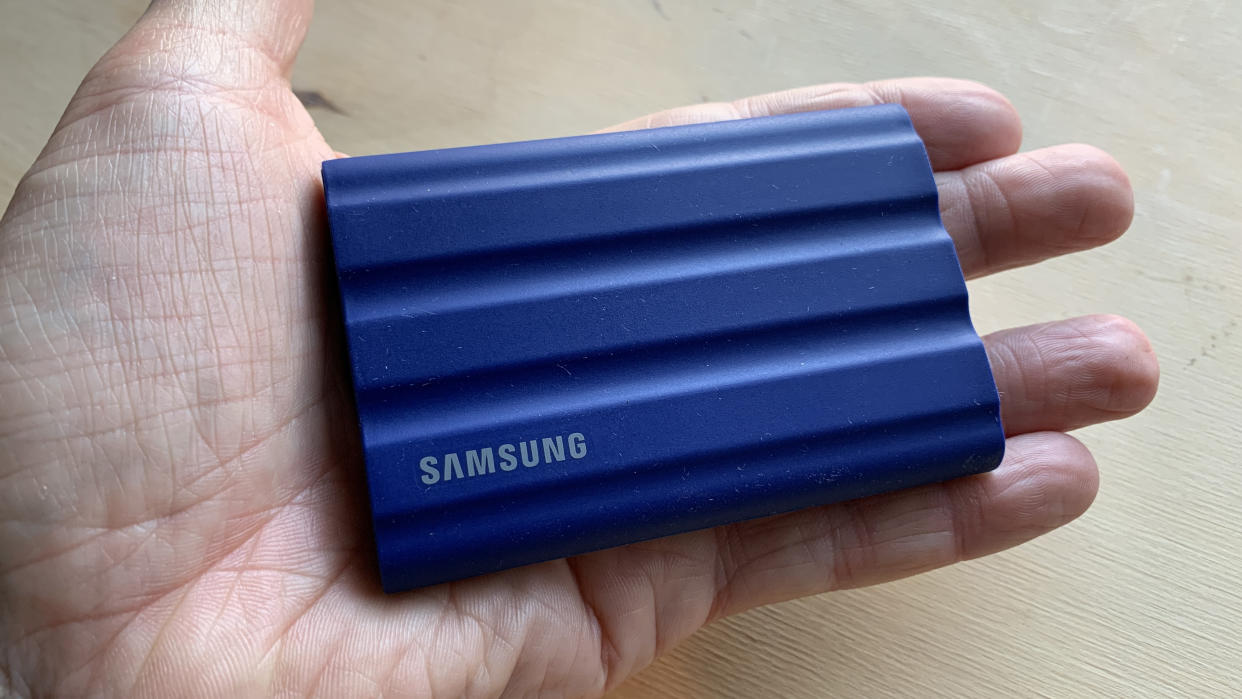
The Samsung T7 range is looking pretty formidable now. The T7 offers good storage capacities with great encryption and the T7 Touch has a brilliant little fingerprint sensor which removes the need to remember a password. The T7 shield largely builds on top of the T7 by delivering a more rugged case that is IP65-rated and has a 3m drop resistance.
The read and write speeds of the T7 Shield are comparable with almost all competitors and are faster than the T5 Evo which has disappointingly slow speeds.
Samsung T7 Shield: Specifications
Samsung T7 Shield: Features
The T7 Shield is remarkably similar to the T7. It has storage capacities of 1TB, 2TB, and 4TB. Across all capacities, it offers sequential read speeds up to 1050 MB/sec and sequential write speeds up to 1000 MB/sec. These speeds are not as quick as the Kingston XS2000, for example, but 1050 MB/sec is pretty standard across most competitors. It does have a USB 3.2 Gen 2 interface which enables 10 Gbps.
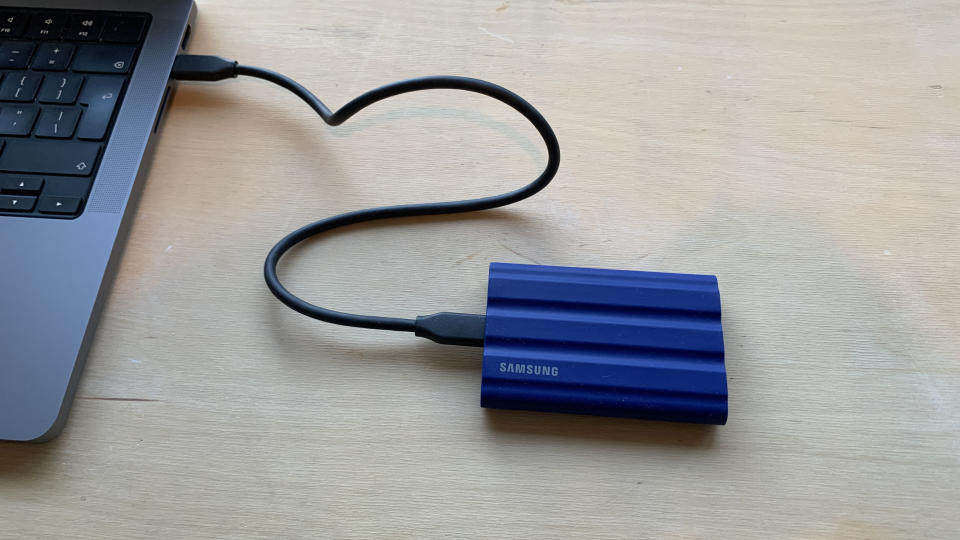
There are no issues when it comes to security with an AES 256-bit hardware encrypted password and Samsung Portable SSD Software 1.0, Samsung Magician Software. All of this gives a significant peace of mind to users. The rubber case is solid so the internal parts won't be damaged and the 3m drop resistance shows a high degree of build quality. This is a full 1m better than its T7 counterpart.
Samsung T7 Shield: Design & Handling
The Samsung T7 Shield is almost identical to the T7 except when it comes to durability. If toughness is really important to you then you'll want to go for the Shield or the Sandisk Extreme Portable SSD V2 over and above the standard T7. This strength and protection comes largely from the IP65 rating which ensures resistance against both water and dust. To give an idea of what that means, the IP65 test requires the device to withstand low-pressure water jets from all directions. The T7 Shield survived absolutely fine.
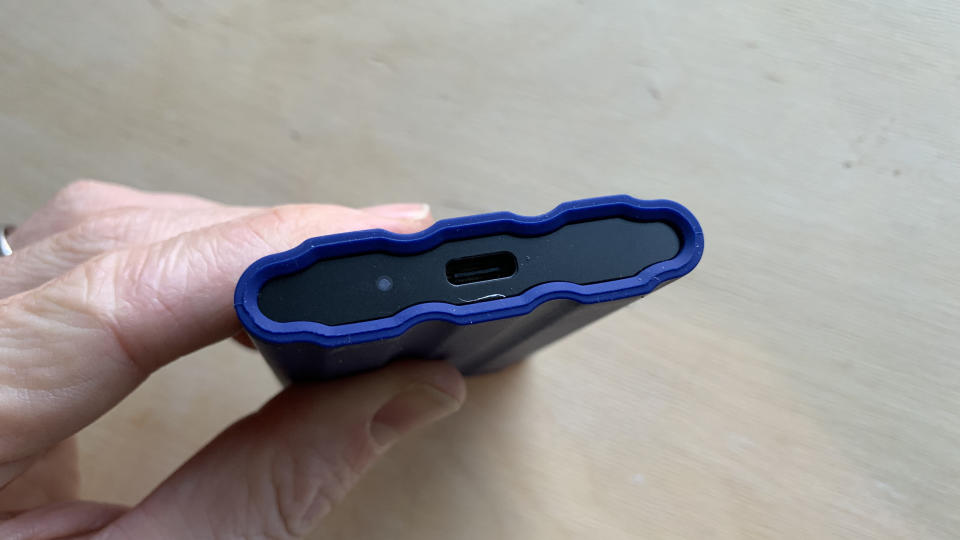
Further to this, the rugged rubber design delivers even better results, especially when it comes to those little knocks and scrapes that are inevitable for a portable device. Its 3-metre drop resistance goes over and above what will be required in almost all circumstances but, again, communicates Samsung's commitment to making a robust SSD.
I was pleased to see a really thick rubber casing because most of the other Samsung SSDs that I've tested and handled have had metal cases. This is fine in most cases, but there's something reassuring about a rubber case, especially when it impacts a hard surface.
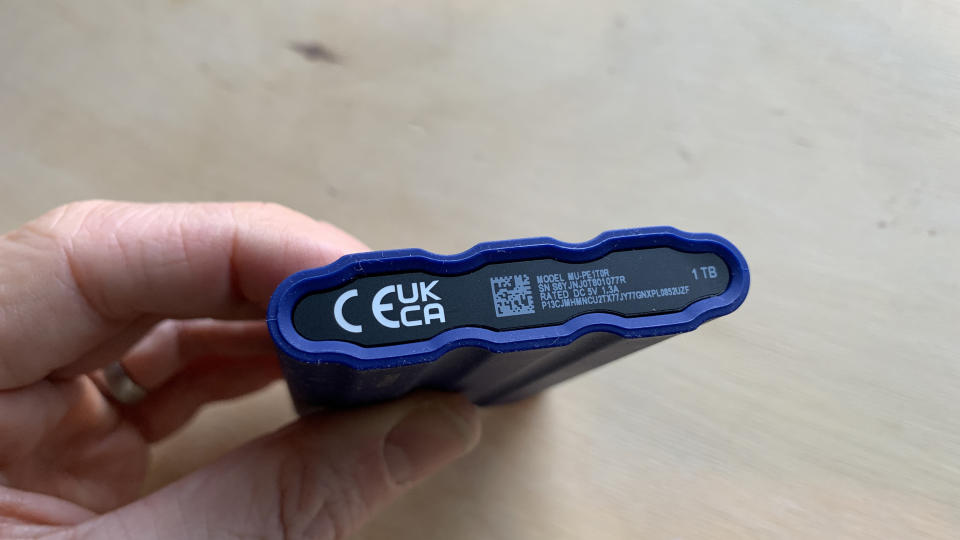
Samsung T7 Shield: Performance
When considering the performance of SSDs, we're wanting to test their reliability, the safety of the stored data, and at what speed the data can be transferred.
Its sequential read speed is 1050 MB/sec and the write speed is 1000 MB/sec. This is comparable to almost all competitors, including the SanDisk Extreme Portable SSD V2 and Western Digital My Passport SSD, as well as Samsung's own T7. It's worth noting that it is faster than the most recently released Samsung T5 Evo, which has 460 MB/sec read and write speeds. I'd like to see fast read/write speeds in general, but most seem to have settled at 1050 MB/sec for some reason.
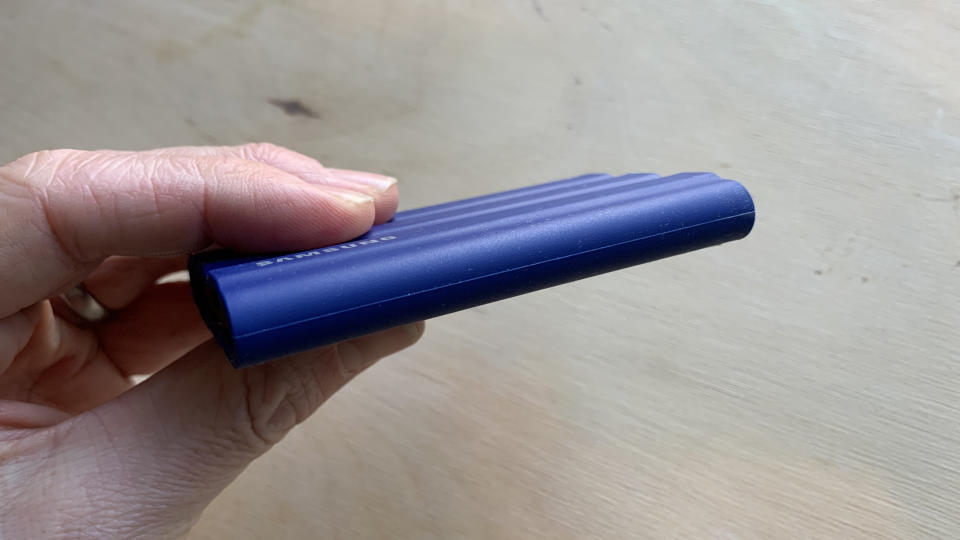
The device performs incredibly well for durability and toughness. I had no concerns about dropping this unit, and any knocks or scrapes were easily handled by the thick rubber case.
In terms of overheating, even though there are no advertised operating temperatures, I had no problem with the device getting too hot. It comes with a Dynamic Thermal Guard to control the heat, which seems to do a good job.
Samsung T7 Shield: Verdict
The T7 Shield is for users who want the highest assurance that their SSDs and therefore their data is not going to get damaged. With a solid rubber case, and an IP65 rating, the T7 Shield delivers on that front. With 1TB, 2TB, and 4TB options, this SSD gives plenty of options for customers to pay only according to their data storage needs. The T7 Shield is pretty expensive and if you're not moving the SSD around very much then there are cheaper ways of getting 4TB of storage. It lacks the fingerprint sensor that the T7 Touch has but overall it performs very well.

Alternatives
One of the most similar competitors would be the Sandisk Extreme Portable SSD. At a cheaper price point, that will be an appealing alternative. There have been some reports of performance issues with the SanDisk, so something like the SE800 by Adata might be better, although this tops out at 1TB.

